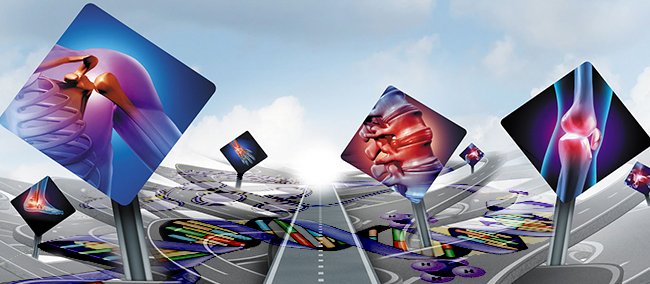
There are a lot of medications and techniques available for relieving pain today, but getting the right ones that work best for a patient is still challenging. First and foremost, a physician needs an accurate description of the pain to help treat it.
However, communicating the location and intensity of pain isn’t that straightforward for many patients, even when asked detailed questions. That’s because pain symptoms are unique to each person and subjective. What may be considered unbearable to one person may be just unpleasant to someone else.
While blood and urine tests are usually taken to rule out certain conditions when it comes to determining the cause of pain, there isn’t any sort of biological tests that can directly identify or categorize pain. If there were, it would make prescribing treatment easier and more effective and allow for better pain therapies management.
The good news is researchers from Switzerland are already working on a way to identify pain categories that could someday be used as a basis for a potential diagnostic assay. Their study, published online in The Journal Pain, assesses epigenetic signatures that are specific to the two main categories of pain – chronic nociceptive and neuropathic.
Whether pain is acute or chronic, the condition of pain itself is complex, as it involves a myriad of interactions between biological, psychological, environmental, and social factors. Thus, treating pain, especially conditions with chronic pain, remains difficult on many levels.
Prior work done by the International Association for the Study of Pain (IASP) has classified the two main types of pain as nociceptive (NOCI) and neuropathic (NEURO). NOCI pain is the most common type, and it occurs when nerve fibers are activated by inflammation, physical events, or chemicals. NEURO pain differs in that it does not develop as a direct response to any specific event or outside stimulus; instead, it alters the central/peripheral nervous system.
These two types of pain, primarily when caused by inflammation, can produce transcriptional and translational changes that affect gene and/or protein expression in neurons at the central level. Epigenetic factors like DNA methylation, histone modification, and chromatin remodeling control gene expression and are triggered by environmental factors such as diet, stress, and toxins. Because changes in the epigenetic landscape are the hallmarks of inflammation-driven diseases, they are also believed to be involved with the induction and maintenance of chronic pain.
In the current study, researchers from the Clinique romande de réadaptation (CRR) in Sion joined forces with the University of Geneva (UNIGE) scientists to carry out an epigenomic analysis that would define specific biomarkers for NOCI and NEURO, making it possible to quickly and accurately identify pain type using a simple blood test.
They performed genome-wide DNA methylation analyses using blood samples from individuals with either NOCI and NEURO and compared them to controls. “The aim was to start without any prior hypothesis to probe the genome as a whole and identify all the biomarkers involved in pain,” said coauthor and UNIGE professor Ariane Giacobino.
The results were remarkable, revealing that both pain types had clearly different epigenetic signatures. Plus, there was no crossover between the NOCI and NEURO groups.
“This total absence of similarities between the two categories of pain is very surprising,” said Giacobino. “Because intuitively, we might think that the difficulty in defining one’s pain comes from a similarity in the epigenetic signature. We could prove that itis absolutely not the case.”
The team was able to determine that the NOCI pain biomarkers were expressed by genes involved in inflammation and irritation, as well as genes related to the opioid system, which is associated with both pleasant and unpleasant emotions. In contrast, the biomarkers for NEURO pain were connected only to the GABAergic signaling systems, which affect the neurotransmitters of the central nervous system.
According to author Bertrand Léger, a researcher at the CRR, “Now that these epigenetic signatures are clearly defined, a simple blood test will make it possible to define the type of pain the person is suffering from and prescribe the appropriate treatment.”
Instead of targeting the symptoms, the researchers believe a test like this would identify the root cause of the problem. Moreover, a patient’s pain could be monitored from an epigenetic perspective by checking to see if identifiable biomarkers return to normal after treatment. As epigenetic modifications are durable and reversible, it’s potentially possible for future therapies to reverse and cure chronic pain disorders.
Source: Ludwig Stenz, et al. (2021). Genome-wide epigenomic analyses in patients with nociceptive and neuropathic chronic pain subtypes reveals alterations in methylation of genes involved in the neuro-musculoskeletal system. The Journal of Pain.
Reference: Relieving pain by mapping its biological signatures. University of Geneva. September 30, 2021.

